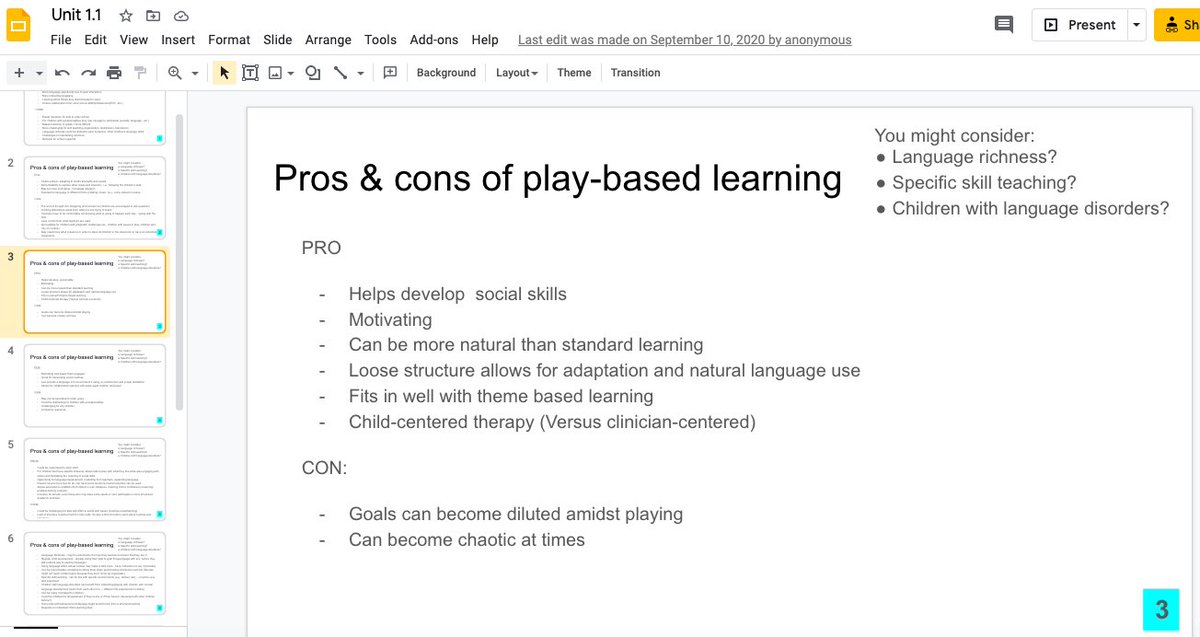
Listening to @57Justice at @CLTTJournal summer lecture. #DevLangDis is the most common reason that children receive special education, especially in the primary school years.
@57Justice @CLTTJournal Justice: our goal in speech therapy should be to optimize language growth for a given period. To do this, we need to have a goal for the growth in language. Benchmarks should be known: pubmed.ncbi.nlm.nih.gov/28124066/
@57Justice @CLTTJournal Justice: We should be doing everything we can to optimize language during the early years. That means, focusing on input. Inclusive classrooms can be an important source of language input for kids with language disorders.
@57Justice @CLTTJournal Justice: Classroom effects in early years on language development. The language skills of peers influence the language of children with DLD. Peer effects predict language level of your classmates. Such cool work! #DevLangDis
@57Justice @CLTTJournal Justice: If you're a kid on an IEP, & you're in a class with few kids on IEP, your language skills by the end of the year are like children who are not on IEP! Kids with sophisticated language evoke more complex language around them. Both direct and indirect (via teacher) effects
@57Justice @CLTTJournal Justice: Kids with #DevLangDis have less access to 'peer language resources' but these resources do drive language. Can this be manipulated: can we set it up so child with DLD interacts with selected children who will provide rich language models. This work is currently underway!
Justice: How can we co-opt the peer effect to amplify language learning opportunities in the classroom?
Thanks for a phenomenal talk! Love this stuff. Wondering about @voice21oracy and also 'talk moves' in the class smekenseducation.com/require-studen…
Thanks for a phenomenal talk! Love this stuff. Wondering about @voice21oracy and also 'talk moves' in the class smekenseducation.com/require-studen…
@voice21oracy Justice: SLPs really need to be in the classroom. A focus on oral language interactions in the classroom (with peers) has considerable potential. (Pull out is often associated with many unused minutes - in setting up, finishing, etc).
Justice: Peer effects have positive impact on those with lower skills and have no (negative) impact on the kids with higher skills. So that's not a real concern.
• • •
Missing some Tweet in this thread? You can try to
force a refresh








